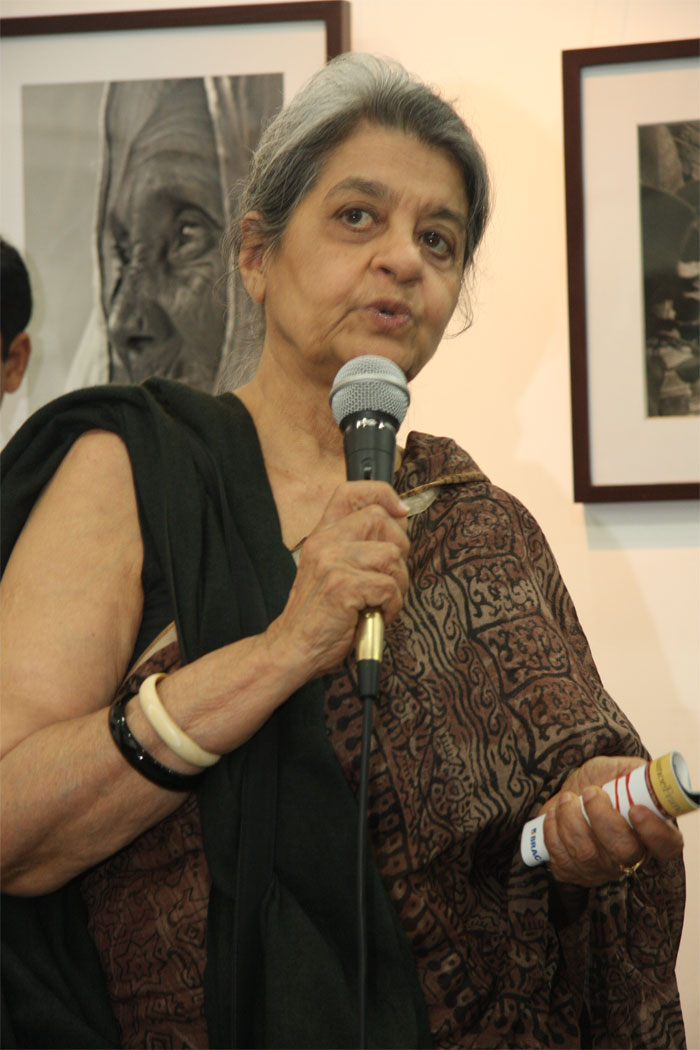- About Us
- Programmes
- Publications
- Researchers
- Public Lectures
- Resource Centre
- Gallery
- Archives
- Directories & Documents
- Media Programme
- Winter Course on Forced Migration
- Research Activities
- Past Annual Reprots

![]()
 |
|
|
|
|
|
Anisuzzaman is Professor Emeritus at the University of Dhaka. He has taught Bengali literature at the universities of Dhaka and Chittagong. He was a Post-doctoral Fellow at the Universitiy of Chicago and a Commonwealth Fellow at the University of London. He was a Visiting Fellow at the University of Paris, North Carolina State University and University of Calcutta. His publications include Muslim-manas O Bangla Sahitya (Dhaka, 1964), Muslim Banglar Samayikpatra (Dhaka, 1969), Swaruper Sandhane (Dhaka, 1976), Purono Bangla Gadya (Dhaka, 1984), Factory Correspondence and other Bengali Documents in the India Office Library and Records (London, 1981), Cultural Pluralism (Kolkata, 1993) and Identity, Religion and Recent History (Kolkata, 1994). |
|
|
|
Brett Neilson is Director of the Centre for Cultural Research at the University of Western Sydney, Australia. His writings and research focus on labour and migration, border struggles, global regionalism, financialization and the transformations of capitalism. He is interested in understanding the significance of cultural and economic change for the thinking and practice of politics. He is author of Free Trade in the Bermuda Triangle ... and Other Tale of Counterglobalization (2004) and has written articles for publications such as Theory, Culture and Society, Subjectivity, Fibreculture Journal, Il Manifesto, Open, Cultural Critique, New Formations, Borderlands, Transeuropéennes and Ephemera. |
|
|
|
Daho Djerbal is a professor of modern history in the Faculty of Humanities and Social Sciences at the University of Algiers-Bouzareah (Algeria). He teaches a wide range of subjects from colonial to postcolonial societies. His research currently concentrates on the relationship between history and memory. He was invited as Visiting Fellow and Visiting Professor at several academic institutions and research: Princeton University, NJ, USA (1995-1996), IEP Paris (2003 and 2004); EHESS Paris (2007 and 2008); Paris 8 Saint Denis (2010). As editor of Naqd, A journal of social criticism (1991-2008) (http://www.revue-naqd.org) since the early 1990s, he has dedicated himself to the publication of studies relating to postcolonial societies and newly independent states. |
 |
|
|
Hameeda Hossain is chairperson of Ain o Salish Kendra (ASK) a legal aid and human rights organization based in Dhaka, and co-chair of South Asians for Human Rights. She edited ASK’s annual report on Human Rights in Bangladesh. She is the co-author of No Better Options? Industrial Women Workers in Bangladesh, UPL, 1990. A recent paper ‘Overcoming the Trauma of War, Contesting Controls, the Struggle Beyond 1971’ was published in Freedom from Fear Freedom from Want? Rethinking Security in Bangladesh (2010). Her publications include Company Weavers of Bengal Textile Production for the East India Company 1753-1813, OUP, New Delhi, 1988. |
 |
|
|
Heikki Patomäki is Professor of World Politics and the Vice Director of the Centre of Excellence in Global Governance Research at the University of Helsinki, Finland. He is also an Innovation Professor of Human Security - Globalization and Global Institutions at the RMIT University in Melbourne, Australia. Patomäki’s research interests include philosophy and methodology of social sciences, global political economy, global futures, peace research and the political theory of global justice and democracy. His most recent book is The Political Economy of Global Security. War, Future Crises and Changes in Global Governance (Routledge, 2008). |
|
|
|
Itty Abraham is Associate Professor of Government and Asian Studies at the University of Texas at Austin and former director of the UT South Asia Institute. He has held appointments at the East-West Center, George Washington University, Stanford University, and the Social Science Research Council (SSRC). He is the author of The Making of the Indian Atomic Bomb: Science, Secrecy and the Postcolonial State, editor of the South Asian Cultures of the Bomb: Atomic Publics and the State in India and Pakistan, co-editor of Illicit Flows and Criminal Things: States, Borders and the other Side of Globalization, and Political Violence in South and Southeast Asia, and numerous articles, book chapters and research reports. |
|
|
|
Meenakshi Gopinath is Principal, Lady Shri Ram College, New Delhi, where she also teaches at the Department of Politics. She is Founder and Honorary Director of WISCOMP (Women in Security, Conflict Management and Peace), an initiative that seeks to promote the leadership of South Asian women in the areas of peace, security and regional cooperation. She was the first woman to serve as member of the National Security Advisory Board. Dr. Gopinath is member of multi-track peace initiatives in Kashmir and between India and Pakistan. She has authored Pakistan in Transition, and co-authored Conflict Resolution – Trends and Prospects, Transcending Conflict: A Resource book on Conflict Transformation and Dialogic Engagement. |
|
|
|
Oren Yiftachel teaches urban studies and political geography at Ben-Gurion University, Beersheba. He has taught for short periods at universities in Australia, the US, India, South Africa and Italy. His research has focused on critical understandings of the relations between space, power and conflict. Yiftachel has published over 100 articles and ten authored and co-edited books, including Planning a Mixed Region in Israel (1992), Planning as Control: Policy and Resistance in Divided Societies (1995), Israelis in Conflict (2004), Ethnocracy: Land and Identity Politics in Israel/Palestine (2006), and Indigenous (in)Justice (co-author, forthcoming). Yiftachel was the founding editor of the journal Hagar: Studies in Culture, Politics and Place.
|
|
|
|
Paikiasothy Saravanamuttu received his Ph.D from the London School of Economics in 1986. He is currently Executive Director of the Centre for Policy Alternatives (CPA) an independent and non-partisan public policy institute focusing on issues of democratic governance, human rights and peace through programmes of research and advocacy. Dr Saravanamuttu is a Co-Convenor of the Centre for Monitoring Election Violence (CMEV) and a Member of the Advisory Board of the Berghof Foundation for Peace Support and the Sri Lanka Advisory Group of the Asia Pacific Leadership Forum on HIV/AIDs and Development. He was a founder Member of the Board of the Sri Lanka Chapter of Transparency International and continued on the Board until June 2009. |
|
|
| Partha Chatterjee is Professor of Anthropology, Columbia University, New York, and Honorary Professor, Centre for Studies in Social Sciences, Calcutta. His publications include Nationalist Thought and the Colonial World (1986), The Nation and Its Fragments (1993), The Politics of the Governed (2004) and Lineages of Political Society (2011). |
|
|
|
Roberta Cohen co-founded the Brookings Project on Internal Displacement and was its co-director for over a decade. She co-authored with Francis M. Deng the first major study on internal displacement, Masses in Flight: The Global Crisis of Internal Displacement and The Forsaken People: Case Studies of the Internally Displaced (Brookings, 1998), and was co-recipient of the Grawemeyer Award for Ideas Improving World Order (2005). She is currently Senior Adviser to the project, a nonresident Senior Fellow in Foreign Policy Studies at the Brookings Institution, a Senior Associate at Georgetown University’s Institute for the Study of International Migration and a Senior Adviser to the Representative of the UN Secretary-General for the Human Rights of Internally Displaced Persons, Walter Kälin (2004-2010). |
|
|
|
Rubina Saigol received her PhD in Education and Development from the University of Rochester and her MA in Development Psychology from Columbia University. She is currently an independent researcher engaged in projects on religions and development, and ethno-nationalism and partition. She has authored and edited several books and papers in English and Urdu on nationalism, the state, ethnicity, religious radicalism, terrorism, education, feminism and human rights. Her publications include Knowledge and Identity, Symbolic Violence, Locating the Self, Social Sciences in the 1990s, A Critical Appraisal of the Human Rights Movement, Women and Resistance, Engendering the Nation-state, Aspects of Women and Development, Deconstructing Terrorism: Discourse and Death in Pakistan, Militarization, Nation and Gender, and Talibanization of Pakistan. |
|
|
|
Sandro Mezzadra holds a BA (Hons.) in Philosophy, a BA (Hons) in Political Sciences, and a PhD in the ‘History of political thought and institutions’. He is associate professor of History of Political Theories at the Faculty of Political Sciences of the University of Bologna, where he has been working since 1999. He teaches ‘colonial and postcolonial studies’ and ‘frontiers of citizenship’. He is currently the coordinator of the Bologna research unity in two research projects that have been funded by the European Commission: ATACD (A Topological Approach to Cultural Dynamics), FP6 and GeMIC (Gender, Migration and Intercultural Interactions in the Mediterranean and South East Europe: an interdisciplinary perspective), FP7. |
|
|
|
Sharit Bhowmik has an MA in sociology from University of Bombay and Ph.D. from the University of Delhi (Delhi School of Economics). His research work was on tea plantation labour in eastern India. He has taught at the University of North Bengal, Indian Institute of Management Calcutta, University of Delhi and University of Mumbai. He is at present Professor of Labour Studies and Dean of the School of Management and Labour Studies, Tata Institute of Social Sciences, Mumbai. He has also been Visiting Faculty at McGill University, Montreal and Guest Professor at Magdeburg University, Germany. Prof. Bhowmik has worked extensively on issues concerning labour. |
|
|
|
Sonia Dayan-Herzbrun is Professor Emeritus of Gender Studies and Political Sociology at University Paris7 and at the Ecole des Hautes Études en Sciences Sociales (Paris). She is the Editor of the journal Tumultes and President of the NGO Islam et Laïcité. She is also a member of the RING (French interdisciplinary network on gender studies). She has published eight books, among which are Femmes et Politiques au Moyen-Orient, (2005,) Le journalisme au cinéma, (2010), and a new translation a of Marx ‘s Critique du Programme de Gotha (2008). She is now mainly working on postcolonial and gender issues, from a sociological and epistemological point of view. |
|
|
|
|
||
|
|